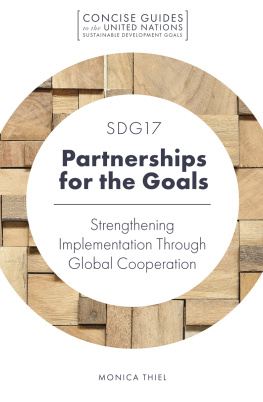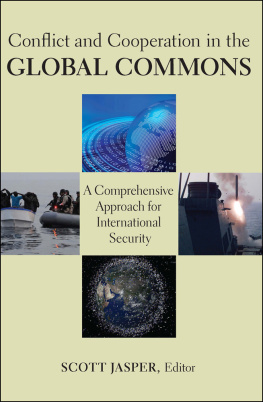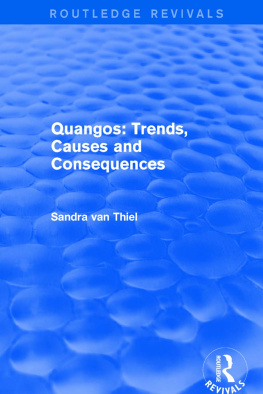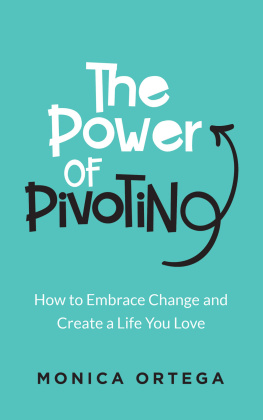SDG17: PARTNERSHIPS FOR THE GOALS
CONCISE GUIDES TO THE UNITED NATIONS SUSTAINABLE DEVELOPMENT GOALS
Series Editors
Walter Leal Filho
World Sustainable Development Research and Transfer
Centre, Hamburg University of Applied Sciences
Mark Mifsud
Centre for Environmental Education and Research, University of Malta
This series comprises 17 short books, each examining one of the UN Sustainable Development Goals.
The series provides an integrated assessment of the SDGs from an economic, social, environmental and cultural perspective. Books in the series critically analyse and assess the SDGs from a multi-disciplinary and a multi-regional standpoint, with each title demonstrating innovation in theoretical and empirical analysis, methodology and application of the SDG concerned.
Titles in this series have a particular focus on the means to implement the SDGs, and each one includes a short introduction to the SDG in question along with a synopsis of their implications on the economic, social, environmental and cultural domains.
SDG17: PARTNERSHIPS FOR THE GOALS
Strengthening Implementation Through Global Cooperation
BY
MONICA THIEL, PH.D.
University of International Business and Economics, School of Public Administration, PR China
and
China University of Petroleum, School of Business Administration, PR China
United Kingdom North America Japan India
Malaysia China
Emerald Publishing Limited
Howard House, Wagon Lane, Bingley BD16 1WA, UK
First edition 2019
Monica Thiel. Published under exclusive licence by Emerald
Publishing Limited.
Reprints and permissions service
Contact:
No part of this book may be reproduced, stored in a retrieval system, transmitted in any form or by any means electronic, mechanical, photocopying, recording or otherwise without either the prior written permission of the publisher or a licence permitting restricted copying issued in the UK by The Copyright Licensing Agency and in the USA by The Copyright Clearance Center. No responsibility is accepted for the accuracy of information contained in the text, illustrations or advertisements. The opinions expressed in these chapters are not necessarily those of the Author or the publisher.
British Library Cataloguing in Publication Data
A catalogue record for this book is available from the British Library
ISBN: 978-1-78769-318-0 (Print)
ISBN: 978-1-78769-315-9 (E-ISBN)
ISBN: 978-1-78769-317-3 (Epub)
This book is dedicated to government and business practitioners who strive to implement partnerships as an effective means to generate economic, social and environmental progress worldwide.
CONTENTS
LIST OF TABLES AND FIGURES
Tables
Figures
ABOUT THE AUTHOR
Monica Thiel, PhD, is a Business and Government Strategy Consultant, an Editorial Board Member for Frontiers Journal Organizational Psychology and The International Journal of Innovation and Sustainable Development, and an Associate Editor, Co-Editor and Author of books about corporate and government responsibility and sustainable development. Some recent publications include Accelerating Environmental Responsibility through Societal Governance published in the Journal of Global Responsibility, and The Power of the Social Domain in Sustainable Development: Non-Market Strategies for Generating Sustainable Competitive Advantage in the Special Issue, Exploring the Nexus of Corporate Responsibility and Sustainable Development, International Journal of Innovation and Sustainable Development.
INTRODUCTION
Sustainable Development Goal (SDG) 17 is an ambitious goal to first, integrate and implement the remaining 16 SDGs within partnerships and second, create public value that simultaneously extends to an interconnected world while encouraging innovation for sustaining the SDGs. Revitalising global partnerships will require rethinking partnership capabilities and revitalising society itself due to how partnerships are interconnected and interdependent within a human and social ecosystem. For instance, current anti-globalisation, free-trade and other institutional shifts and regulatory uncertainty foster market and non-market threats, thereby influencing the role and impact of partnership formation, execution and performance. The book will address business, government and civil society levels of analyses for understanding the impact and role of partnership sustainable development change initiatives.
Partnership concerns are predominately focussed on opportunistic business goals and benefits rather than the systemic partnering process itself. The rational behind this logic may be related to focussing on the benefits and costs of the partnership goal and purpose. However, partnerships do not operate in a vacuum. Rather, they can drive change. Therefore, it is the intention of the author to convey that current partnership practices may actually impede sustainable business benefits through a disregard for excellence and a lack for deeper knowledge of how partnerships can affect corporate value and public value. Unsurprisingly, many partnership models and practices are vague and open to interpretation, and may be exploited by competitors because people may prefer to directly compete rather than pursue collaboration on broad and interdependent societal problems such as the SDGs. Hence, a deeper understanding of partnerships is warranted to glean obscure costs and benefits and to improve business profits, practices and partnerships systematically. Overall, the book takes an approach towards partnerships to convey that business concerns are not independent of partnership concerns.
Strengthening the means for implementation of the SDGs require re-examining partnership beliefs, re-defining partnership objectives and risk management with continual monitoring and reporting of partnership performance targets, outcomes and goals. Partnerships vary and lack adequate guidance on how to successfully implement each goal and partnership across sectors at the local, regional, national and global levels simultaneously in the short- and in the long-term. Moreover, creating partnership indicators is a challenge nationally that may prove to be a pyrrhic victory because current partnership interventions lack adequate quantitative evidence to ensure successful implementation and resilience. In addition, contemporary levels of governance fail to integrate across sectors holistically. Accordingly, partnerships are often formed without regard for an ethics of care.
The topic of the book, partnerships, has been implemented without coherently providing the specific concepts, forms and practices. This has led students and practitioners to think about partnerships as simply a collaborative endeavour. However, partnerships are often implemented in various ways, often without considering the impact, process or systemic performance of the partnership itself. The objective of the book is to teach people, especially students and practitioners about partnerships through comprehensive critical analyses to help readers learn how to formulate, integrate, implement and monitor partnership performance. In addition, the book should be helpful for people intending to research on partnerships, especially practitioners that have competitive advantages based on an understanding of how business, government and society at large drive partnerships globally and nationally to solve economic, environmental and social problems.











